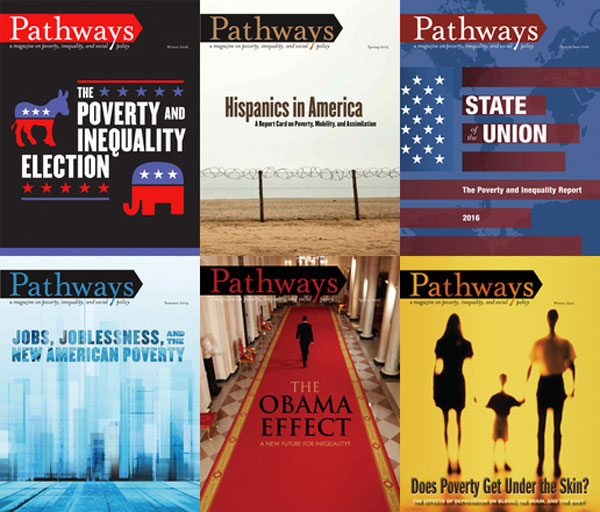The Stanford Poverty & Technology Lab was initiated by Founding Director Elisabeth Mason. This program is currently inactive.
Technology-based solutions that increase opportunity and reduce poverty
Over the last 25 years, the U.S. has been transformed by two big forces: the technological revolution and the rise in income inequality. Are they linked? There is good reason to believe that they are: The technologies unleashed in Silicon Valley have created new winner-take-all industries, have unraveled some of the protected industries that, for all their inefficiencies, nonetheless typically provided decent wages among the working class, and have opened up the specter of further decreases in prime-age employment as jobs are automated away.

The mission
The simple objective of the Stanford Poverty & Technology Lab is to turn Silicon Valley “against itself” by developing technology-based solutions to problems that are, in part, technology-driven. The Poverty & Technology Lab will be the first lab dedicated to leveraging the data and technology revolution to create new, lasting, and low-cost solutions to poverty and inequality in the United States.
The Stanford Poverty & Technology Lab is dedicated to developing new theories about poverty while at the same time incubating applied technology solutions. The lab represents a bold attempt to create a new field: The old division of theory and practice, which is the hallmark of conventional poverty analysis, is discarded in favor of new thinking about how technology can be harnessed to overcome the physical segregation of neighborhoods, the poverty-generating effects of high transaction costs, and the poverty-reproducing effects of limited information.
We believe that real solutions for real people will be based on new conversations and an authentic collaboration between Silicon Valley and leaders from education, government, and low-income communities. The lab will focus on imagining, building, and testing new technology-based interventions that reduce transaction costs, lower information costs, and break down barriers to participation and entrepreneurship. Examples include:
- Job referral and connective services for low-wage and low-skill labor
- Educational interventions and information-sharing systems for members of low-income communities
- Online search, rating, and comparison services for poverty-reducing social programs
- Interventions to increase knowledge about, and utilization of, entrepreneurial opportunities and education or training programs
The no-holds-barred objective: To develop a suite of ambitious “Silicon Valley” anti-poverty interventions that change the face of poverty in the Bay Area and the United States.
An innovation incubator based on new collaborations
The lab will creatively assemble people who can make things happen. The lab teams, competing against and challenging one another to find the solutions that deliver, will be based on new collaborations that trigger innovative approaches. The teams will bring together:
- Stanford computer scientists, engineers, economists, education scholars, business school professors, and sociologists
- Members of low-income communities
- The unrivaled expertise of collaborating Silicon Valley companies
- Government and nonprofit experts
- Undergraduate, graduate, and postgraduate students

Continuous testing and retesting
The testing and evaluation will occur within sites throughout the U.S. that suffer from urban and suburban poverty, agricultural poverty, deindustrializing poverty, new immigrant poverty, and the many other types of poverty in the United States. We do not assume that there is necessarily a one-size-fits-all solution to poverty. We will instead continuously test and retest within different sites.

Disseminating the best anti-poverty technology
We will also act as clearinghouse for the best and newest ways to use technology against poverty and for opportunity. We will use Pathways Magazine as well as other media to spotlight how technology can create new opportunities for low-income communities. We will launch the country’s first Technology and Poverty Conference and hold periodic gatherings that will breed and combine ideas. And we will offer support for exciting new ideas.
Top photo by Thomas Hawk.

